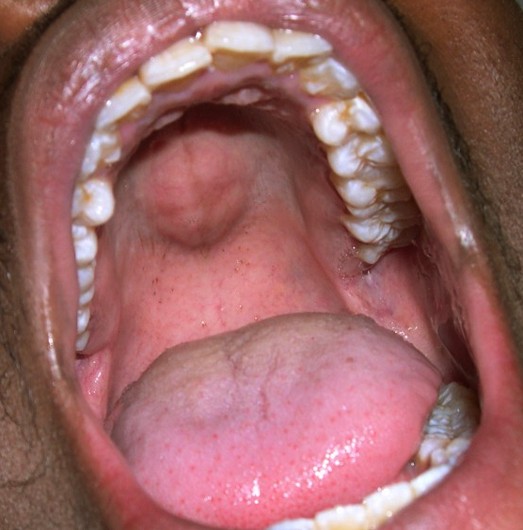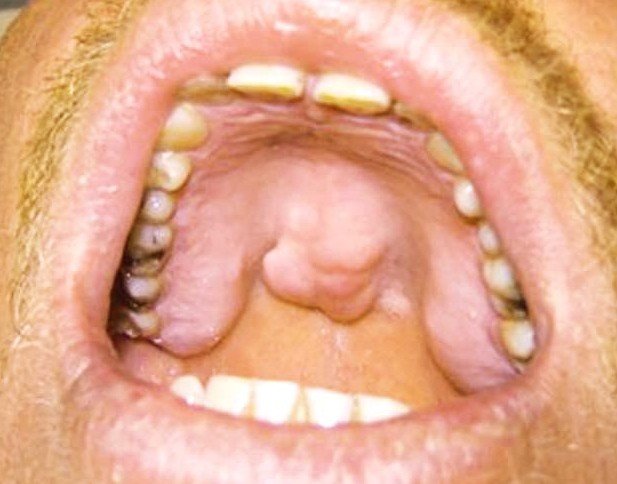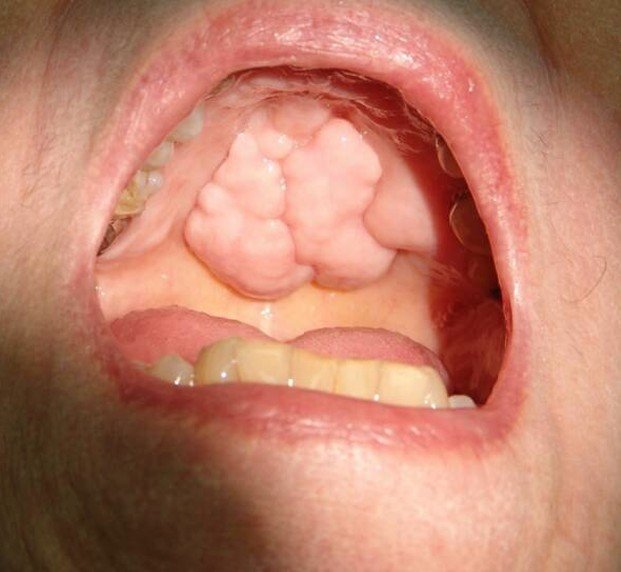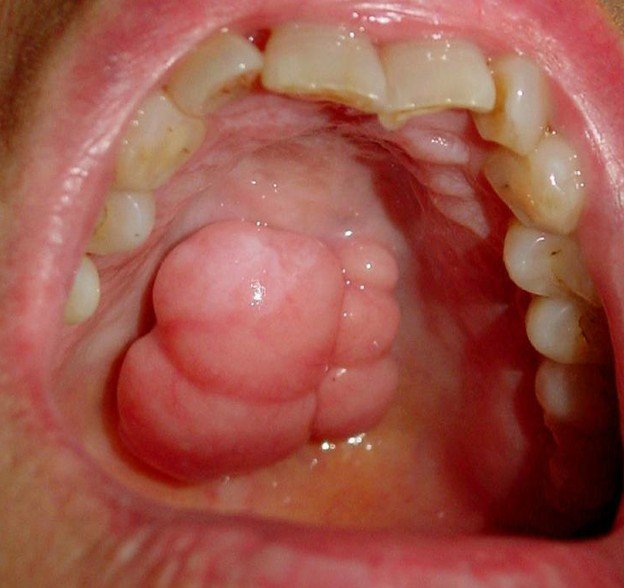Torus Palatinus
Last reviewed by Dr. Raj MD on January 12th, 2022.
What is Torus Palatinus?
This is a type of bony protrusion or growth at the roof of your mouth at the mid-line in this part of your mouth, also known as the palate. It is sometimes referred to as palatinus torus. In Latin the word “torus” means bull, lump, or to stand out” so because the lumps can have a large bulbous shape is why it is called torus palatinus. It is not a life-threatening medical condition but if it is a serious case it could require medical attention. The growths are solid and cannot be moved by your finger.
According to medical research that has been done it seems that torus palatinus is more common in females than males. You will also see them more in Asians, Inuit Eskimos, and Native Americans than in any other ethnic group or race. It occurs in approximately one-fourth to one-third of the population in the United States. It will normally appear during the early years of adulthood and as you grow older it will start to shrink because of the re-absorption of your bones.
Torus Palatinus Symptoms
Although this is not really a symptom a person who has torus palatinus will usually have a growth that has a diameter of two centimeters but it can be bigger because it tends to grow slowly. As mentioned it can vary in size from a spindle or tiny nodule to a massive bump. This growth can be broad and flat or knob-shaped and usually feels smooth. There are some instances in which they combine to form a growth that is similar to a tumor but it can also appear as a singular growth. The growths are usually not painful but the bigger growths do have a possibility of presenting irritation in your mouth. These growths are made of bone and are covered by pink, non-resilient, and firm tissue of your palate.
If you injure your mouth where the growth is it could be slow to heal because a lack of an efficient number of blood vessels in the area and may become painful if ulcers start to develop. One of the major symptoms of having torus palatinus is the difficulty it could cause with drinking and eating. Having torus palatinus could also interfere with the placement of dentures causing an infection that could spread to the palate or bone itself. If this happens you would start to experience ulcerations and pain.
Causes of Torus Palatinus
What causes a person to develop torus palatinus is yet to be determined. Some researchers believe it could be genetic. The reason researchers believe it could be genetic is that this medical condition follows a pattern of autosomal dominant inheritance. This means the mutated gene is located on one of the autosomes, which is any chromosome other than a sex chromosome. This helps to explain the occurrence of torus palatinus appearing in certain ethnic groups. Parents who are affected with torus palatinus have a fifty percent chance of passing the mutant gene to their children.
Some of the other causes can include:
- Chewing excessively
- Superficial injuries
- Calcium and vitamin deficiencies
- Environmental agents
- Tooth abrasion or grinding your teeth while sleeping
- Use of phenytoin which is an anticonvulsant medication that is used to control and prevent certain types of seizures.
Treatment
It is not a life-threatening medical condition but if it is a serious case it could require medical attention. If you have torus palatinus due to it interfering with the placement of your dentures you would need to see your physician or dentist for medical treatment. If the torus palatinus is not very large and does not cause any problems with drinking or eating it is best to leave it alone and not have it surgically removed.
Torus Palatinus Removal
The standard treatment is to have surgery to remove a certain amount of bone in your palate. Your prognosis is usually excellent after having the surgery. You will normally have no major complications after having surgery.
Torus Palatinus Pictures
Collection of pictures of Torus Palatinus…



